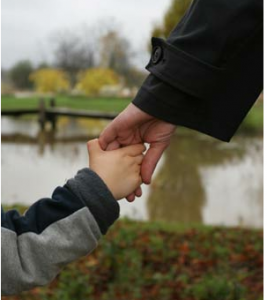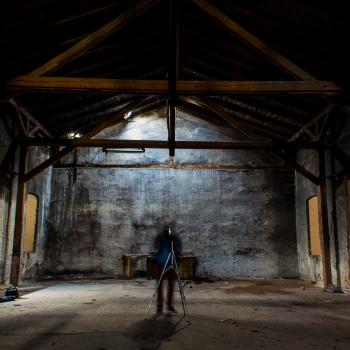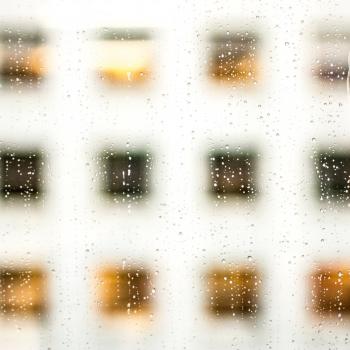 I recently saw a brief clip of a ten year-old girl in her classroom who looks up to see that her soldier father has unexpectedly come home from Iraq. I confess that I am a complete sucker for this. I couldn’t describe the video to someone without getting husky voiced, which is just plain embarrassing. I watched it on Youtube a half dozen times, and then—because the Internet is of the devil—I was presented with the opportunity to watch other videos that the Youtube algorithm deemed similar to the first.
I recently saw a brief clip of a ten year-old girl in her classroom who looks up to see that her soldier father has unexpectedly come home from Iraq. I confess that I am a complete sucker for this. I couldn’t describe the video to someone without getting husky voiced, which is just plain embarrassing. I watched it on Youtube a half dozen times, and then—because the Internet is of the devil—I was presented with the opportunity to watch other videos that the Youtube algorithm deemed similar to the first.
So of course I watched them all.
Some are exploitive—parents and principals and news anchors all conspiring in elaborate, hours-long hoaxes to maximize the surprise of children, and ensure that it’s all captured on high-quality film for consumption by suckers like me. Others, like the video that pulled me in, are simple and brief and lovely.
I suppose one could argue that all of it is exploitive. These homecoming videos are certainly the essence of sentimentality, an unearned emotional manipulation of the reader or viewer that is the hallmark of bad film and fiction.
All the same, I’m glad I saw the good clips, as well as the bad ones. The bad ones reminded me how we want to turn everything into reality-show glam—capturing real people on film but not real lives, only the outsized and contrived parts of their lives: over-scripted homecomings, family interventions with drug addicts, the pornographic coupling of plasticized bodies.
The good videos are simple and sweet and last only a few seconds, after which they hand back to these families the bulk of their privacy and dignity. I know I’m eliding a point here, which is that they’re only relatively good in that regard because they don’t violate familial privacy to nearly the extent of the most exploitive in their genre.
They remind us that there are families suffering daily in the latest modern American war—a perpetual conflict with no widespread sacrifice or commitment on the home front. They remind us that there are happy endings, sometimes, quiet victories, homecomings not taken for granted.
My children don’t cry when I come for them, which is a good thing, because it means they still love me, but are not so heartbroken over my weekly absence that they can’t contain their emotions. They don’t cry, but all of them run to me, they nearly knock me down with their love, they bury me in it and so I am weekly healed, just a little, and strengthened, and filled up with a love that you either know or you don’t know, there’s no describing it otherwise.
When you are divorced, there’s no end of people who feel licensed to tell you what’s best for your children. You feel scrutinized at every turn—what you let them eat, how often you give them Bible lessons, whether you’re using the right sunscreen.
Because I know a few people who style themselves as Christians, I also get, on occasion, the fire and brimstone message that I will very likely smoke a turd in hell for my sins, past and present—an extra-large turd, because I’m a terrible father, the chief proof being that I’m no longer married to the mother of my children.
The truth is I’ve always been afraid I’m a terrible father, so I gobble up those words when they get hurled my way. I choke them down and let them brood like a poison, working into my flesh from the inside out.
As I watched, on Father’s Day, the video of that little girl tearfully welcoming her father home, I couldn’t help but think of a story Chuck Colson told, about how one Mother’s Day his prison fellowship team offered cards and stamps to all the prisoners in their care. They ran out, the demand was so great.
Bolstered by this success, they made the same offer for Father’s Day. They got not a single taker.
Here we have two extremes, then, of fatherhood. At the one end, we see children both young and grown, rushing headlong into the arms of their fathers. At the other end, we see grown children, embittered and alone, living as if their fathers are dead.
Maybe all parents balance along that line, each word, each action, inching us closer to one end or the other in our children’s lives.
Or perhaps it’s closer to truth to say that nearly everything we do, so long as we love our children, keeps us moving closer to the full heart-knittedness that we yearn for with anyone we love. Maybe what set all those fathers of men in prison the wrong direction, more than anything else, was their inaction.
I like to think so, because I don’t trust my own judgment. I love my boys and so I feed them and talk to them and chastise them and wrestle with them, and I don’t know if I’m doing all the right things or enough of them, but I do know it’s all I can do. And I pray it’s enough, and that they’ll always run to me, even if I don’t deserve it.
Tony Woodlief lives outside Wichita, Kansas, and is the author of a spiritual memoir, Somewhere More Holy. His essays on faith and parenting have appeared in The Wall Street Journal, The London Times, and WORLD Magazine. His short stories, two of which have been nominated for Pushcart prizes, have been published in Image and Ruminate. His website is www.tonywoodlief.com.











